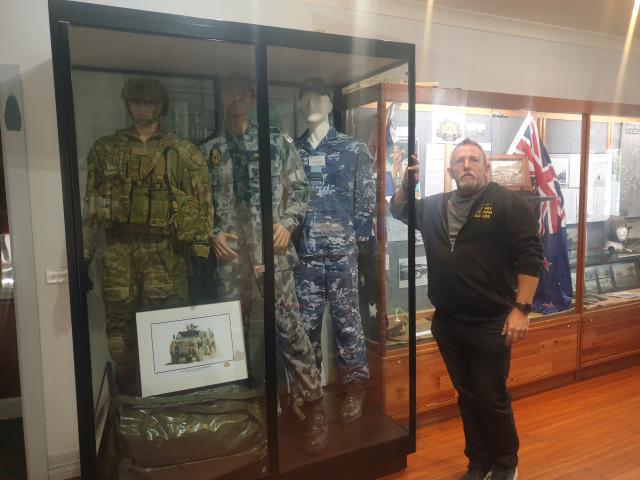
By Parker McKenzie
According to presidents of Dandenong Ranges RSLs, younger veterans are taking decades to join the clubs without being aware of the services made available to them.
Monbulk RSL president Bill Ford said it can be difficult for the clubs to know when veterans have moved into the area if they don’t reach out first.
“What we have found that takes between 10 to 20 years for veterans to join an RSL after they leave the service,” he said.
“We need the young veterans to keep the RSL going and there’s plenty of military veterans, whether they’ve served overseas or not, who can join the RSL and keep it going.”
Upwey Belgrave RSL president Anthony Stewart said he didn’t join the RSL until 28 years after he left military service.
“It took that long for me to claim the medal I’d earned while I was serving,” he said.
“It takes a while to learn, but when you realise anything that has already happened you can’t change. All you can do is work with now and in the future it’s negotiable.”
RSL clubs often offer services to newer veterans including dealing with veterans affairs and offering mental health services to those in need.
Mr Ford suggested one solution would be to have RSL members on bases signing up members before they leave the military, so they understand the services available to them.
“We’ve suggested to Anzac House to talk to the military and perhaps having an RSL club on the bases to sign members up,” he said.
“Wherever they are transferred to, they can transfer straight to the RSL on that base, getting them used to what the RSL does.”
Stuart Coghill, one of Monbulk RSL’s youngest members, said often it comes down to the individual and how busy they are with life after the military.
“A lot of guys my age would probably think it’s just another thing that is a bit too much effort,” he said.
“The sense of belonging is lost when you leave, regardless of how sound of mind you are. It’s a unique kind of friendship or mateship that is lost when you leave.
“I don’t really have anyone my age that I know very well, so I’d be psyched if there was. I think that would be a huge part of it if there were friendly faces that they know.”
The youngest member of Upwey Belgrave RSL joined at 21 and the club has members who served in the military in other countries, including a former United States Air Force pilot.
Mr Stewart said often veterans don’t know what the RSL has to offer and still see it as a boys club.
“It’s where you went to forget about your shell shock, so you can get with your mates and have a few beers, have a few more drinks and sooner or later you’ve drunk so much you can remember,” Mr Stewart said.
“Mental health is now is now a major consideration and there are much better ways to deal with it.”
Mr Stewart recently used money from a State Government grant to display the military outfits from recent wars in the hope it would attract younger veterans to join the club, with one recently doing so after showing his son the uniform he served in.
Mr Ford said the biggest barrier facing recruiting newer veterans to RSL clubs is often being unable to reach them in the first place.
“I help them as much as I can, if we can’t help them we will take them to someone who can. They’ve got to make the move themselves, we don’t know where they are.”
“A lot of them are suffering from PTSD and mental issues and they need professional help from doctors. We are sometimes at a loss at what more we can do.”






